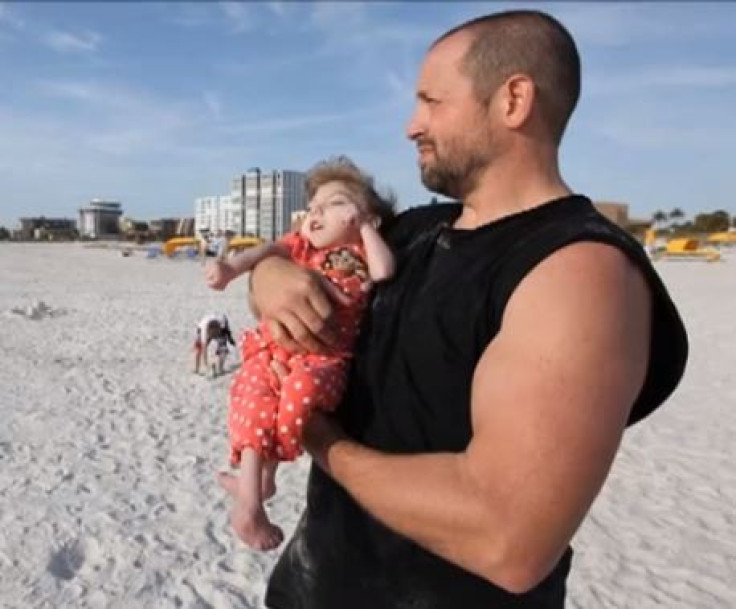8-year-old Girl Who Does Not Age Could Hold Secret of 'Biological Immortality'

An eight-year-old girl who never ages is being closely monitored by scientists who want to prevent ageing in the wider population.
With her supple skin and dependent nature, Gabby Williams, from Billings city, Montana, USA, is just like a new born child. She needs to be fed and her nappies are changed by her mother.
Gabby weighs only 5 kilograms and is a victim of a rare condition which slows her rate of ageing.
She has now become an interesting case study for doctors trying to find the genetic off-switch to stop the ageing process.
"Gabrielle hasn't changed since pretty much forever," her mother, Mary Margret Williams, told ABC News.
"She has gotten a little longer and we have jumped into putting her in size 3-6 month clothes instead of 0-3 months for the footies. Last time we weighed her she was up a pound to 11 pounds and she's gotten a few more haircuts," Williams added.
In the same condition as Gabby is a 29-year-old man from Florida with the body of a 10-year-old. And one 31-year-old Brazilian woman is the size of a two-year-old child.
"In some people, something happens to them and the development process is retarded," medical researcher Richard F. Walker said.
"The rate of change in the body slows and is negligible," he added.
The people Walker studies not only age slower than others, but also struggle with problems such as deafness, the inability to walk, speak etc.
Walker explains that for a person's growth, physiological and psychological changes go hand in hand. He calls it "developmental inertia".
"Without that process we never develop," he said.
"When we develop, all the pieces of our body come together and change and are coordinated. Otherwise, there would be chaos," he added.
Walker further said that there is no way ageing can be stopped. Even after we reach the age of 20, our bodies continue to change and age.
"There is a progressive erosion of internal order as a result of developmental inertia," he said.
In one of his case studies, Walker found that a patient's gene responsible for developmental inertia was faulty.
"If we could identify the gene and then at young adulthood we could silence the expression of developmental inertia, find an off-switch, when you do that, there is perfect homeostasis and you are biologically immortal."
© Copyright IBTimes 2024. All rights reserved.





